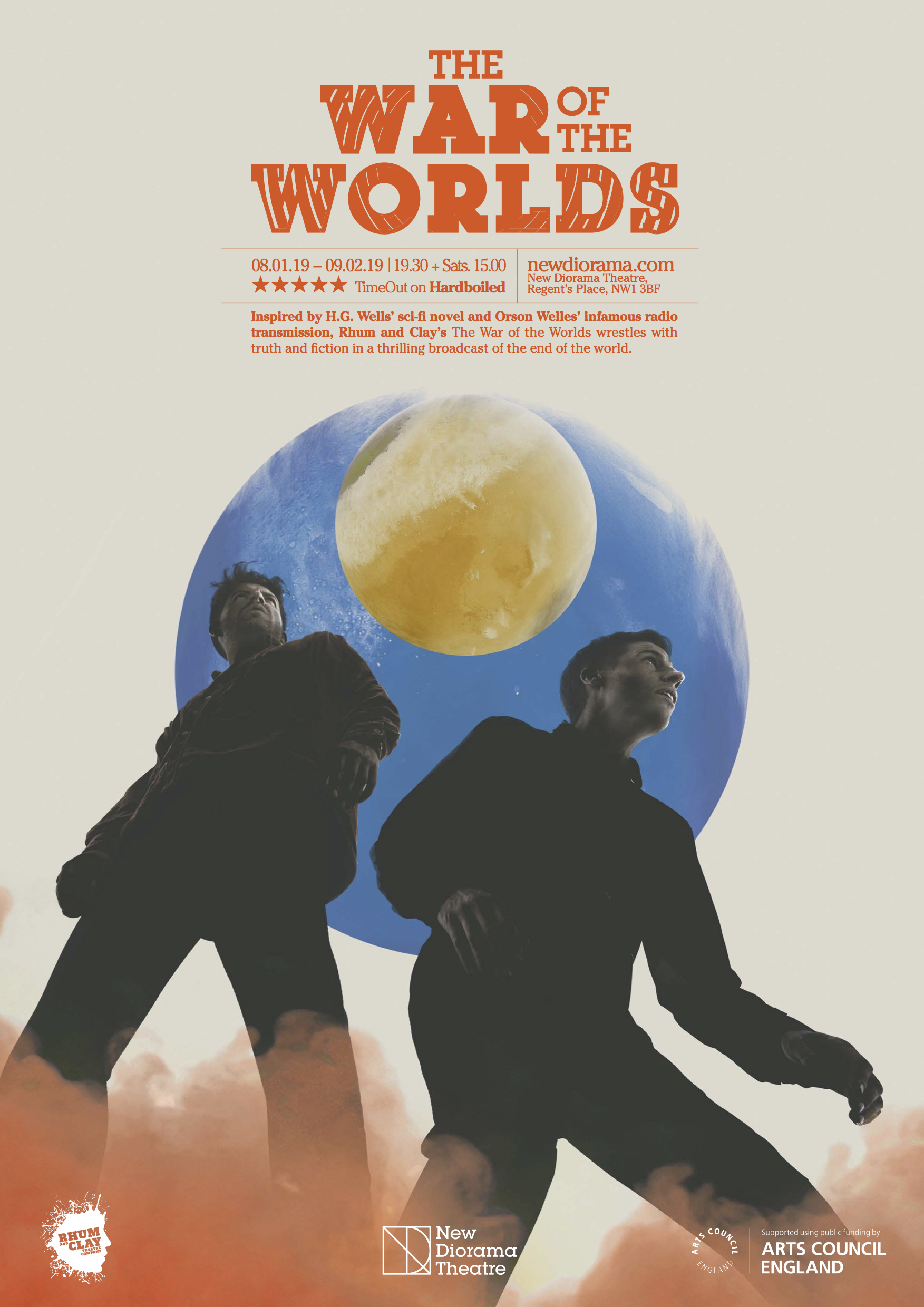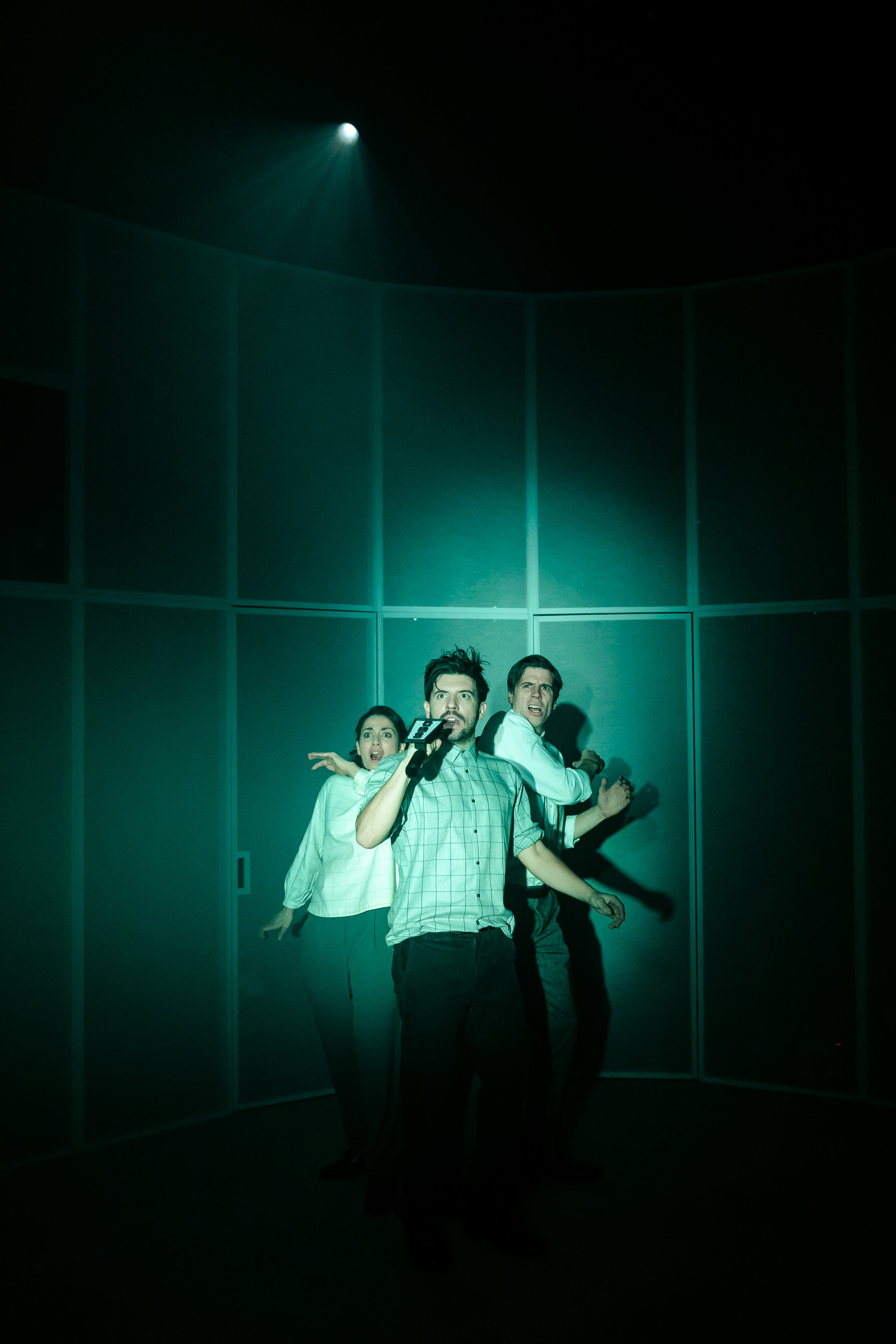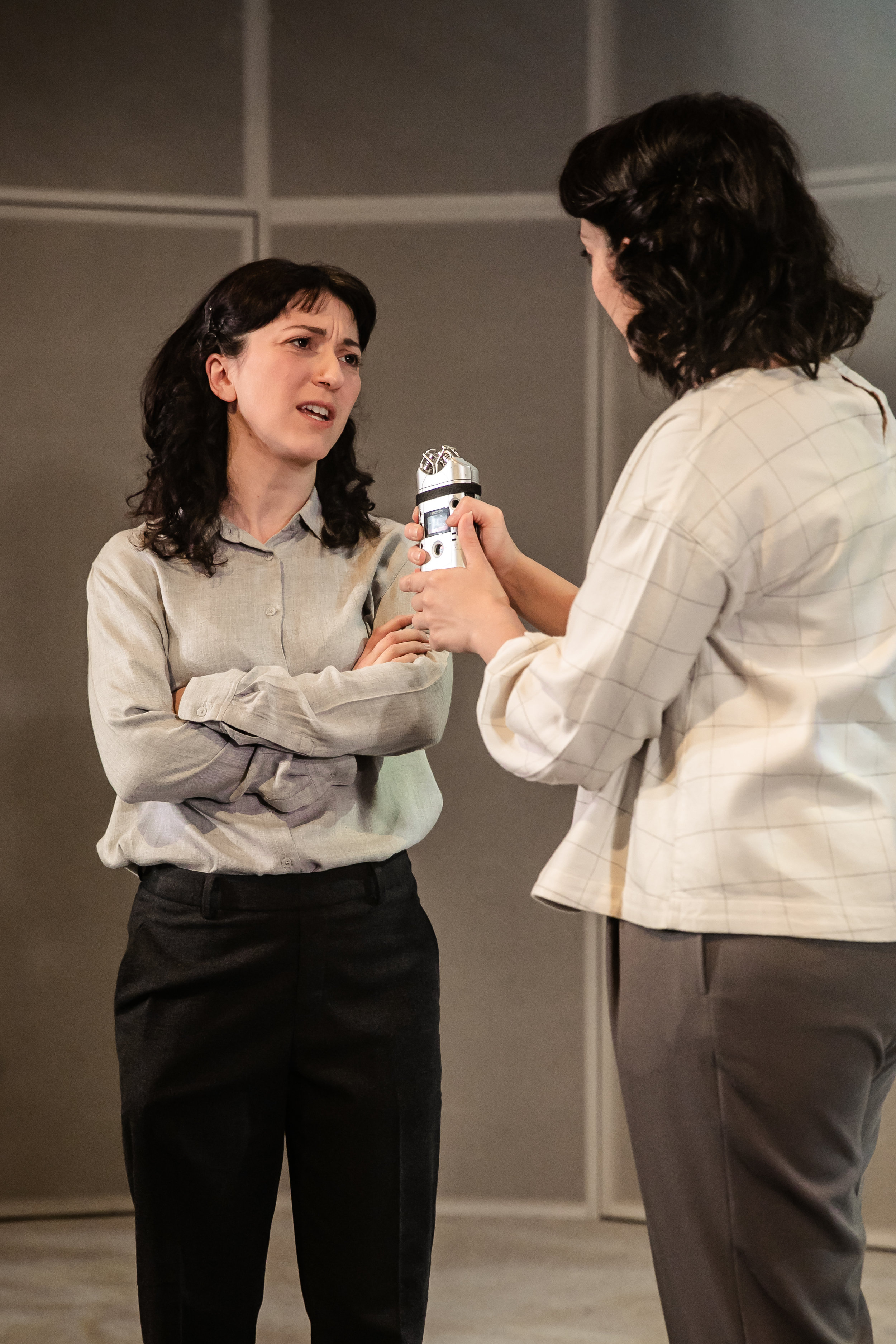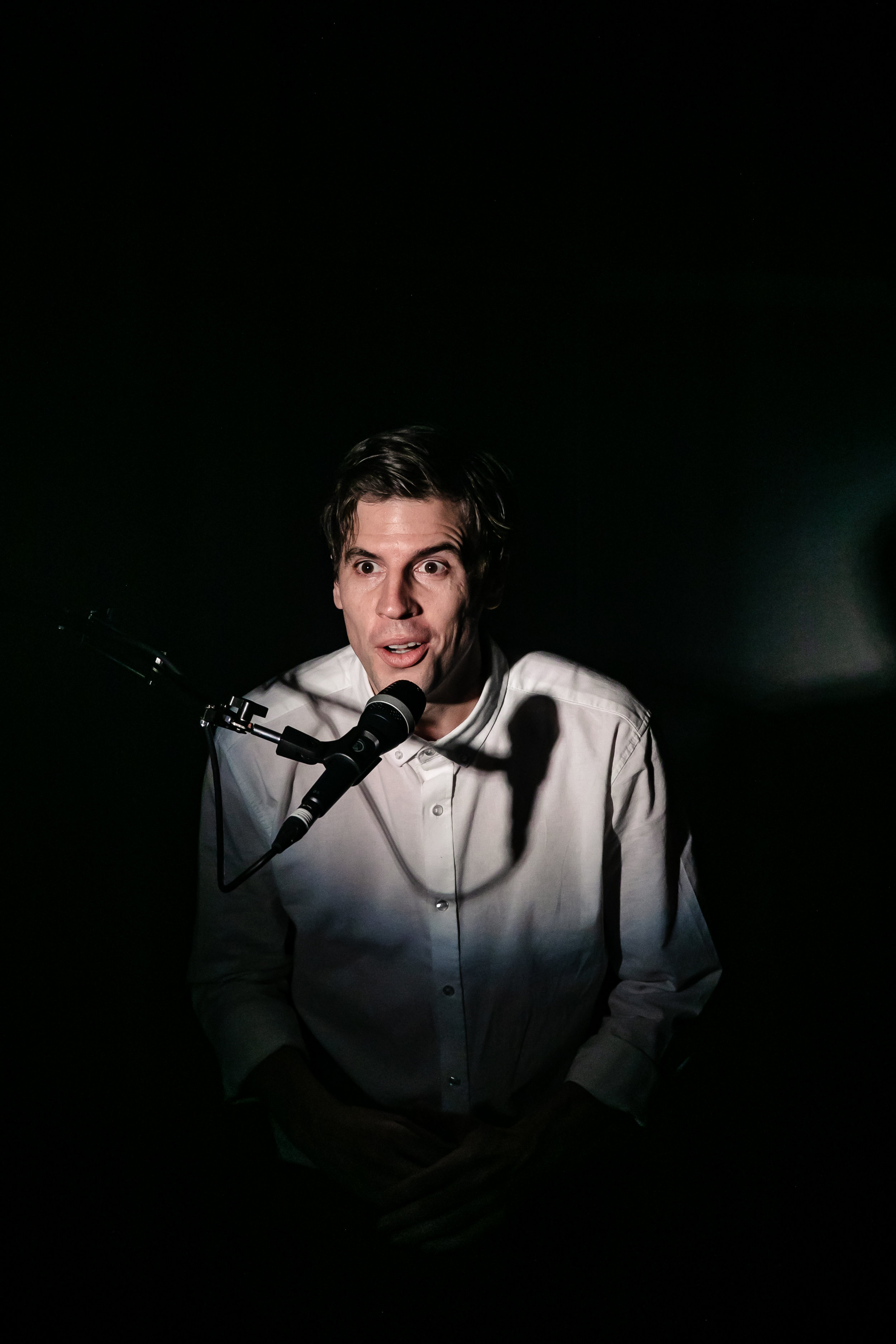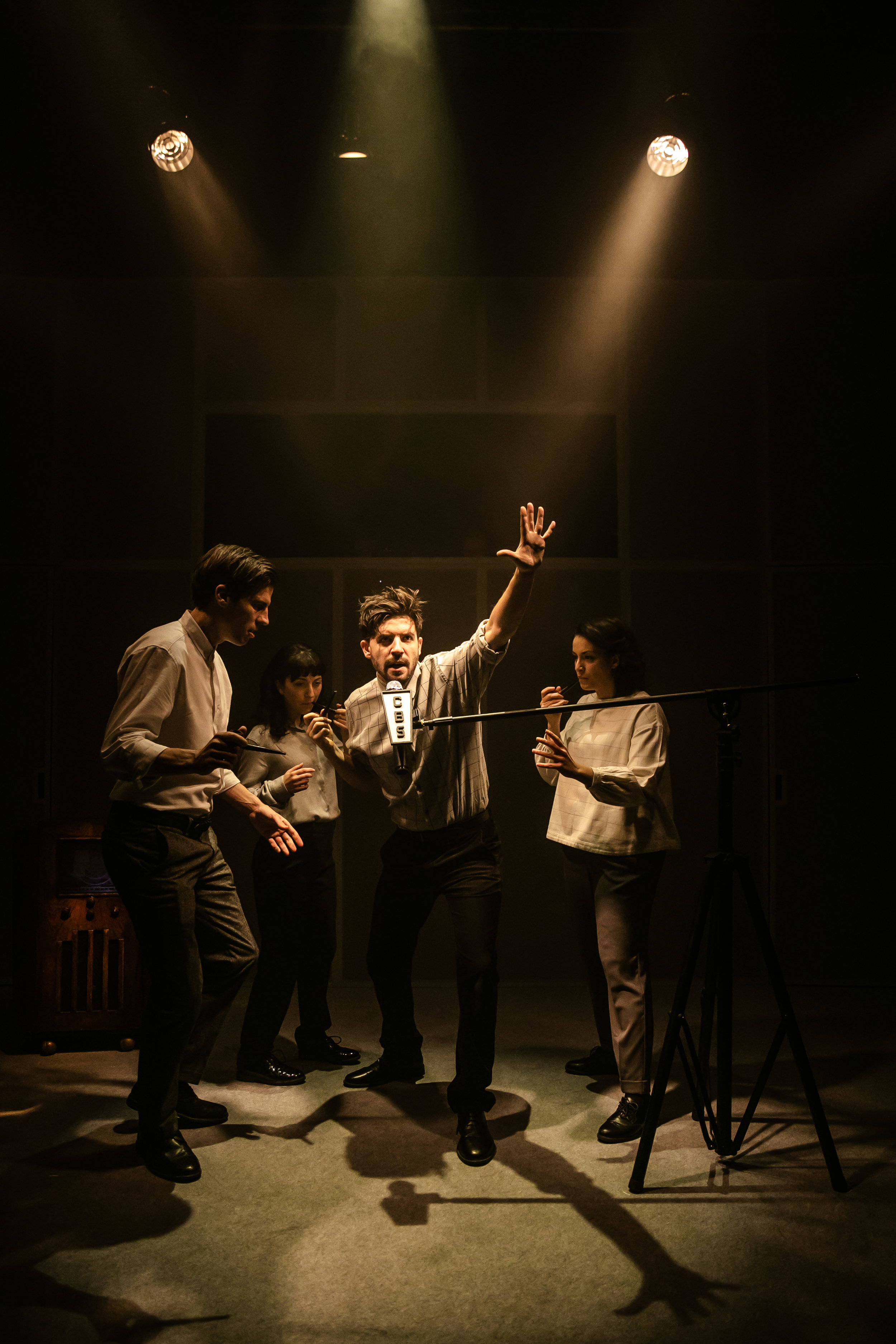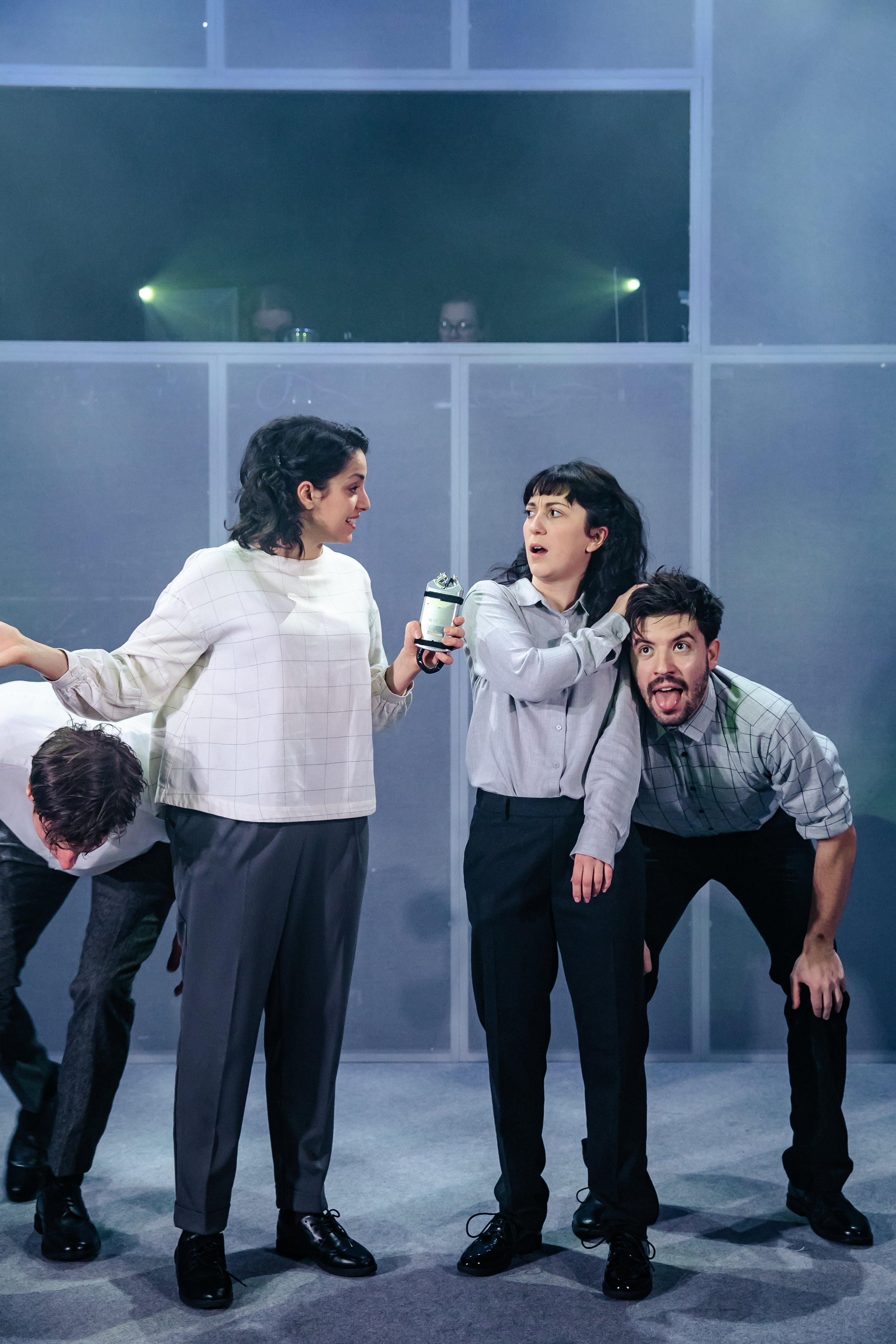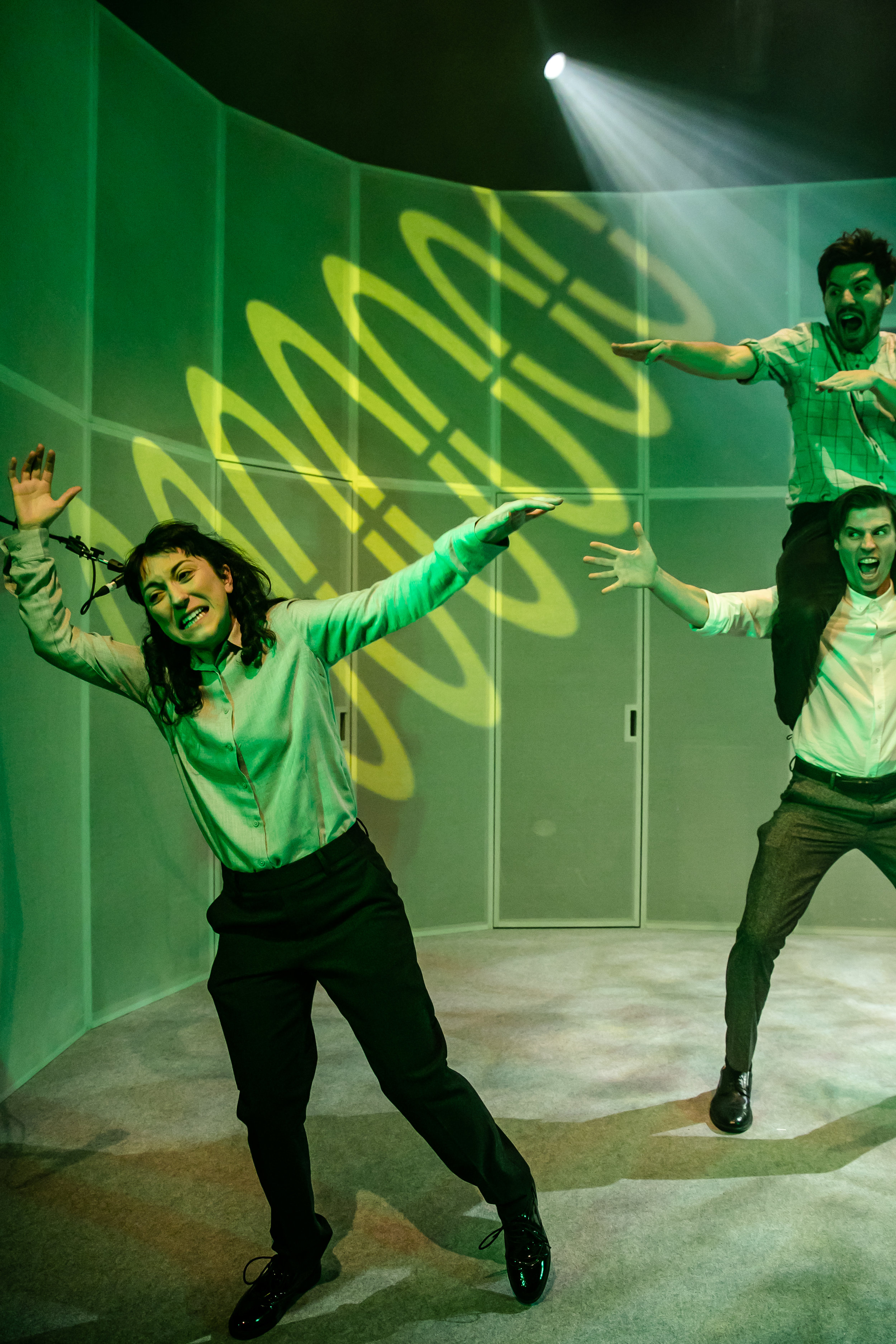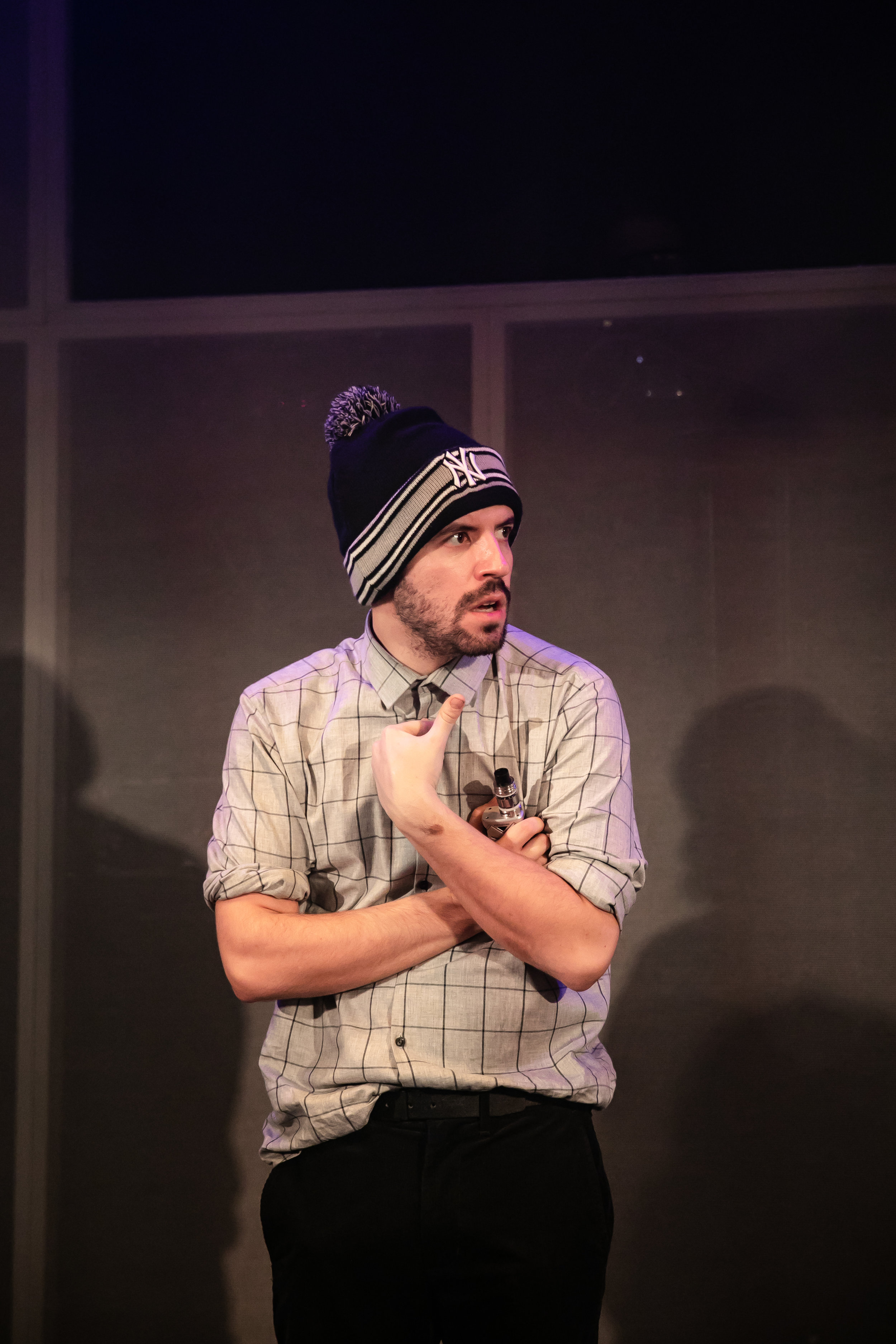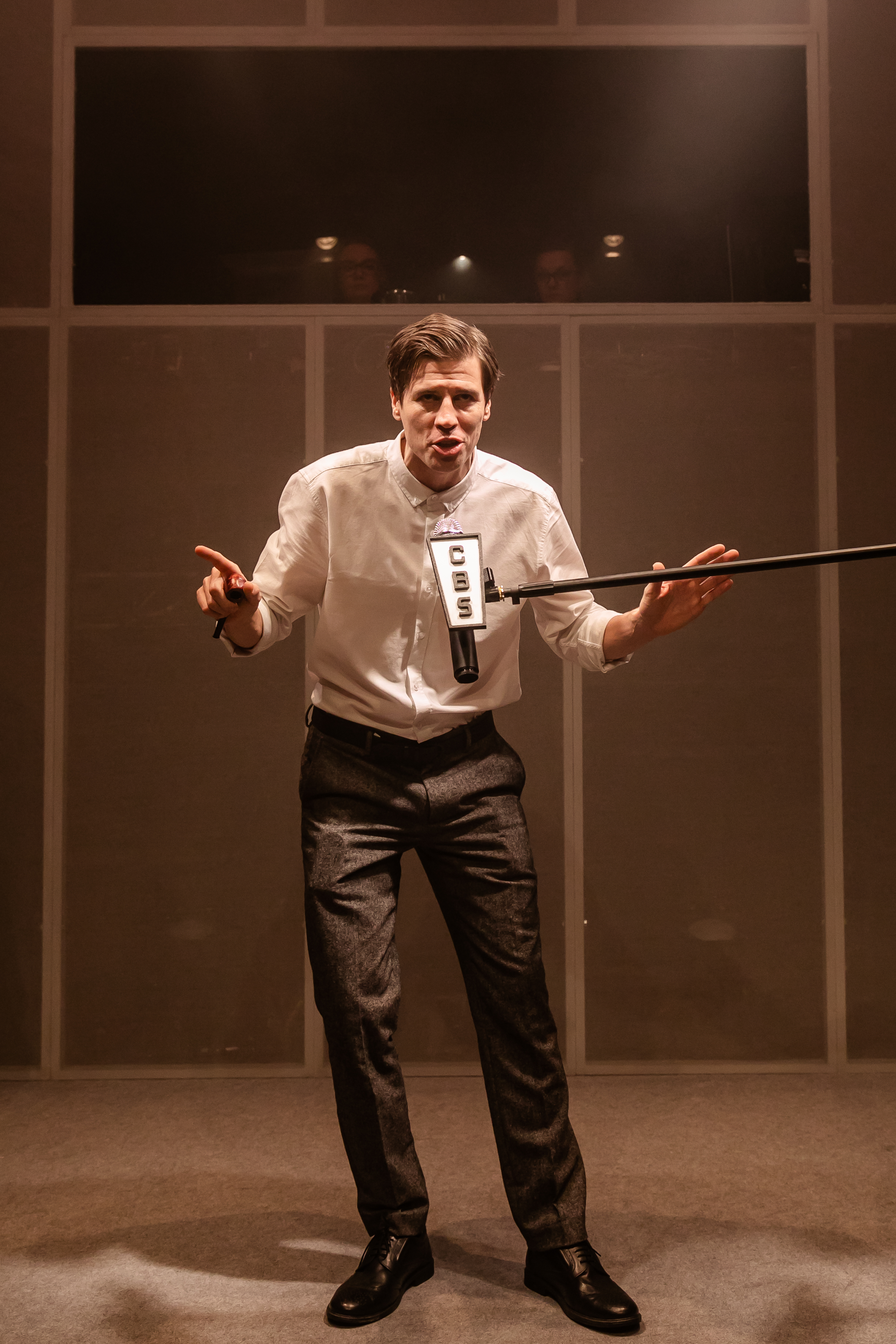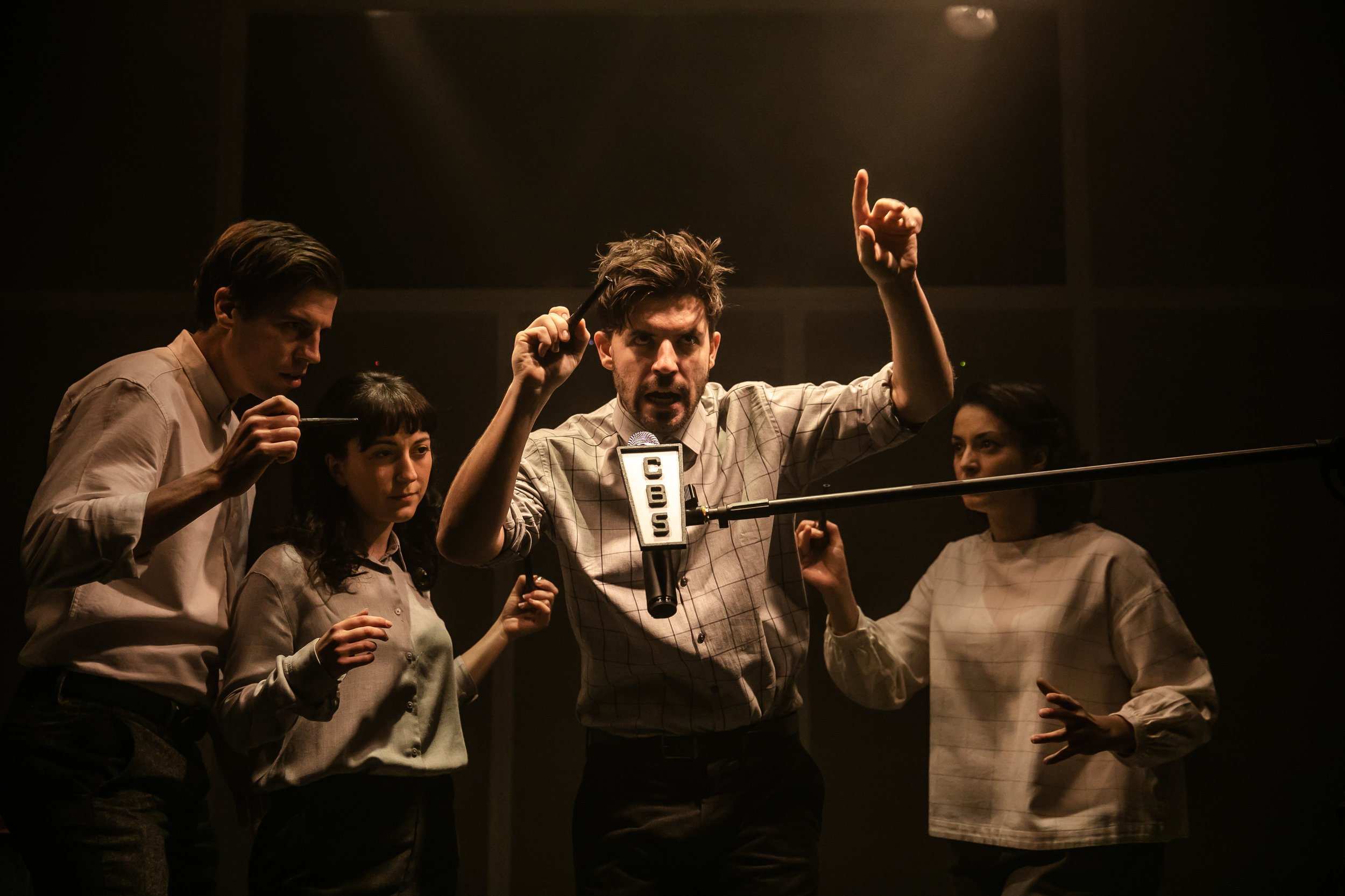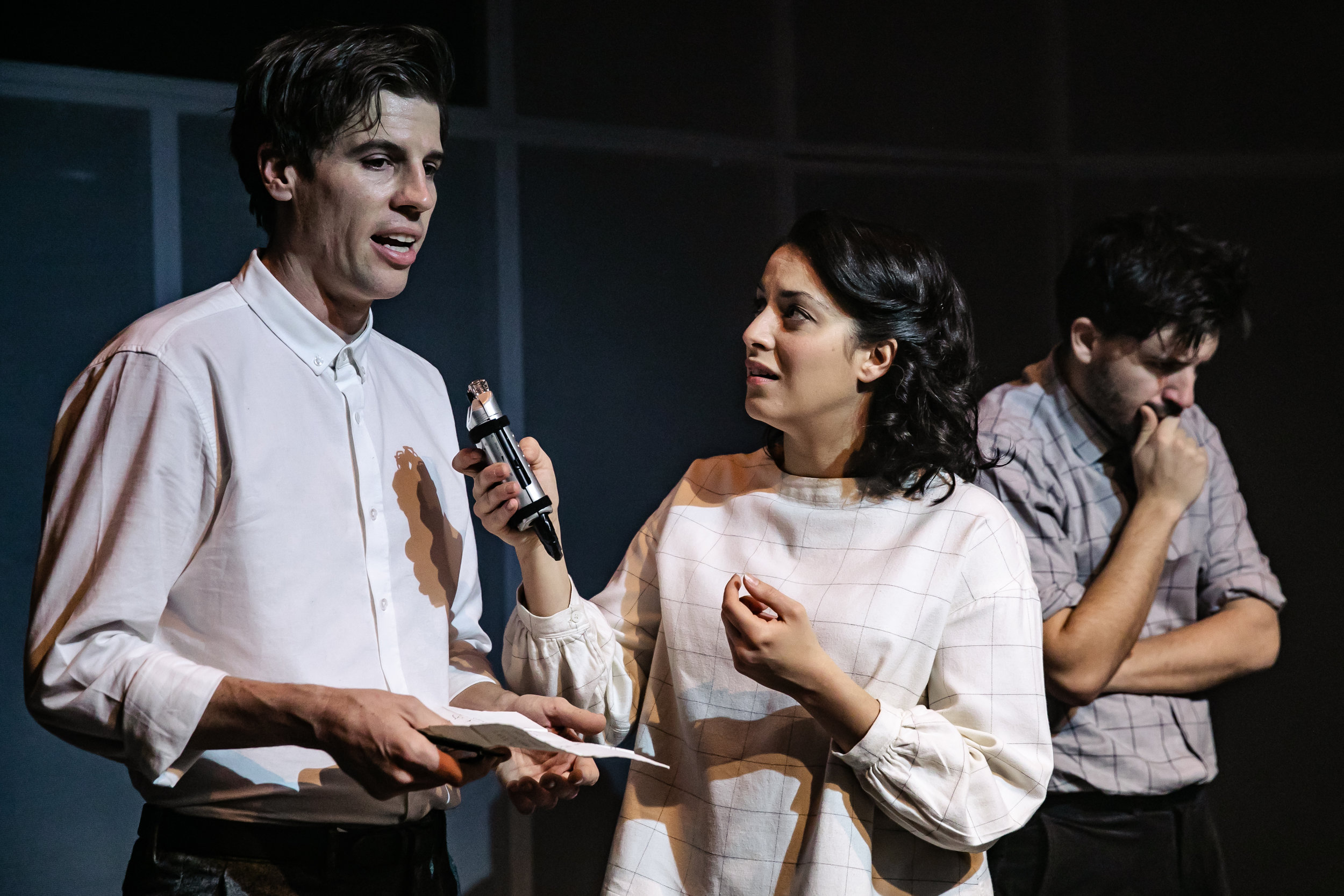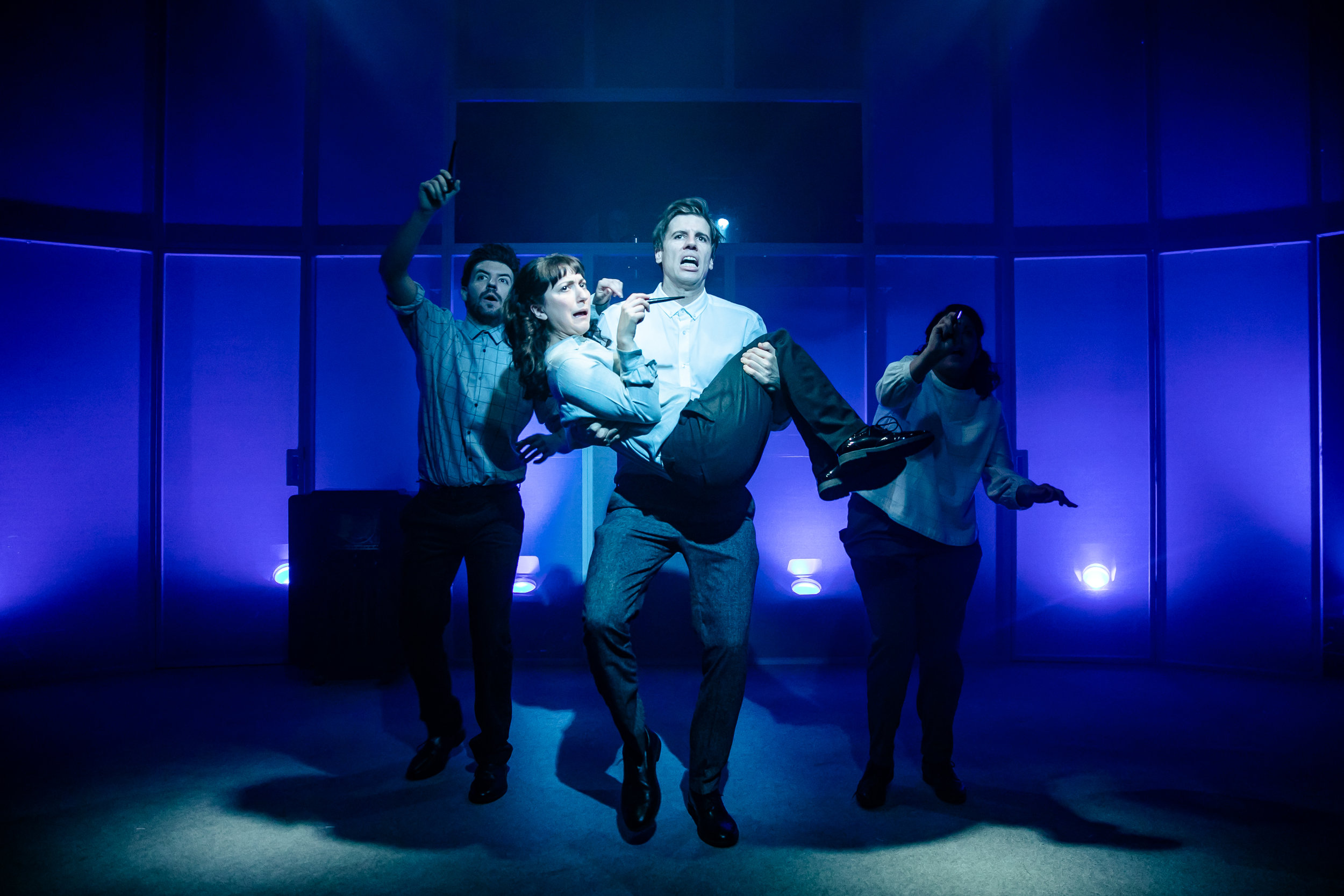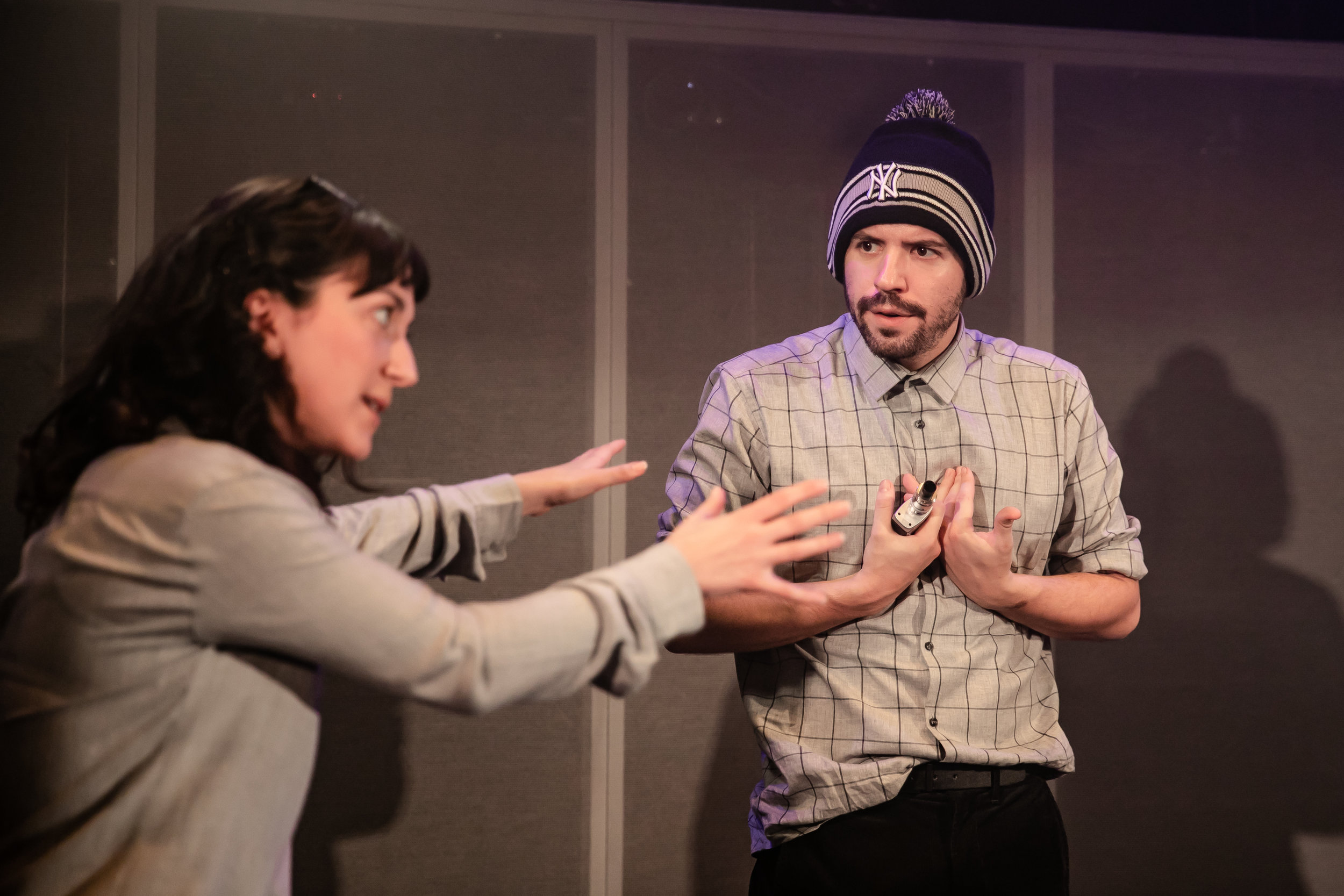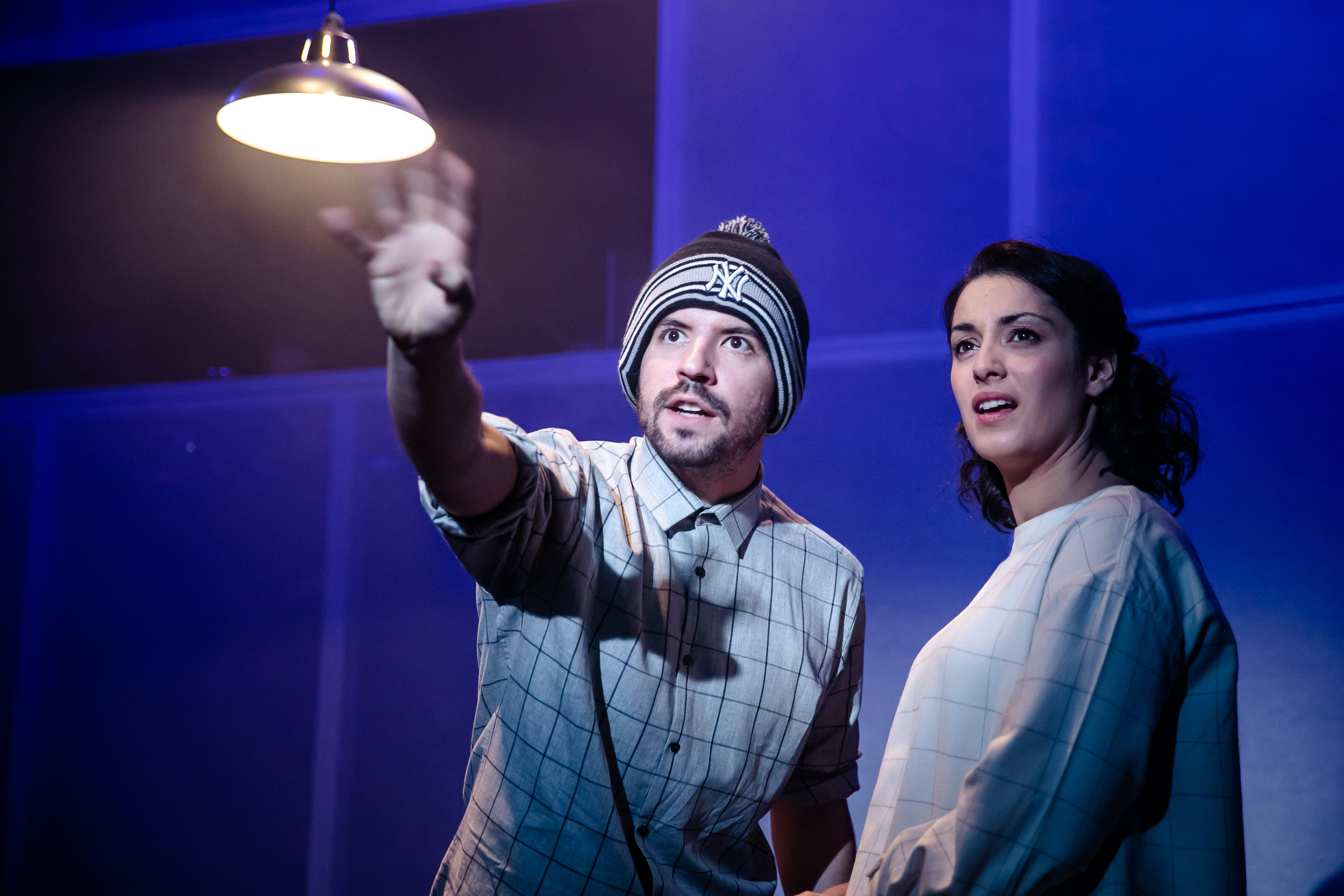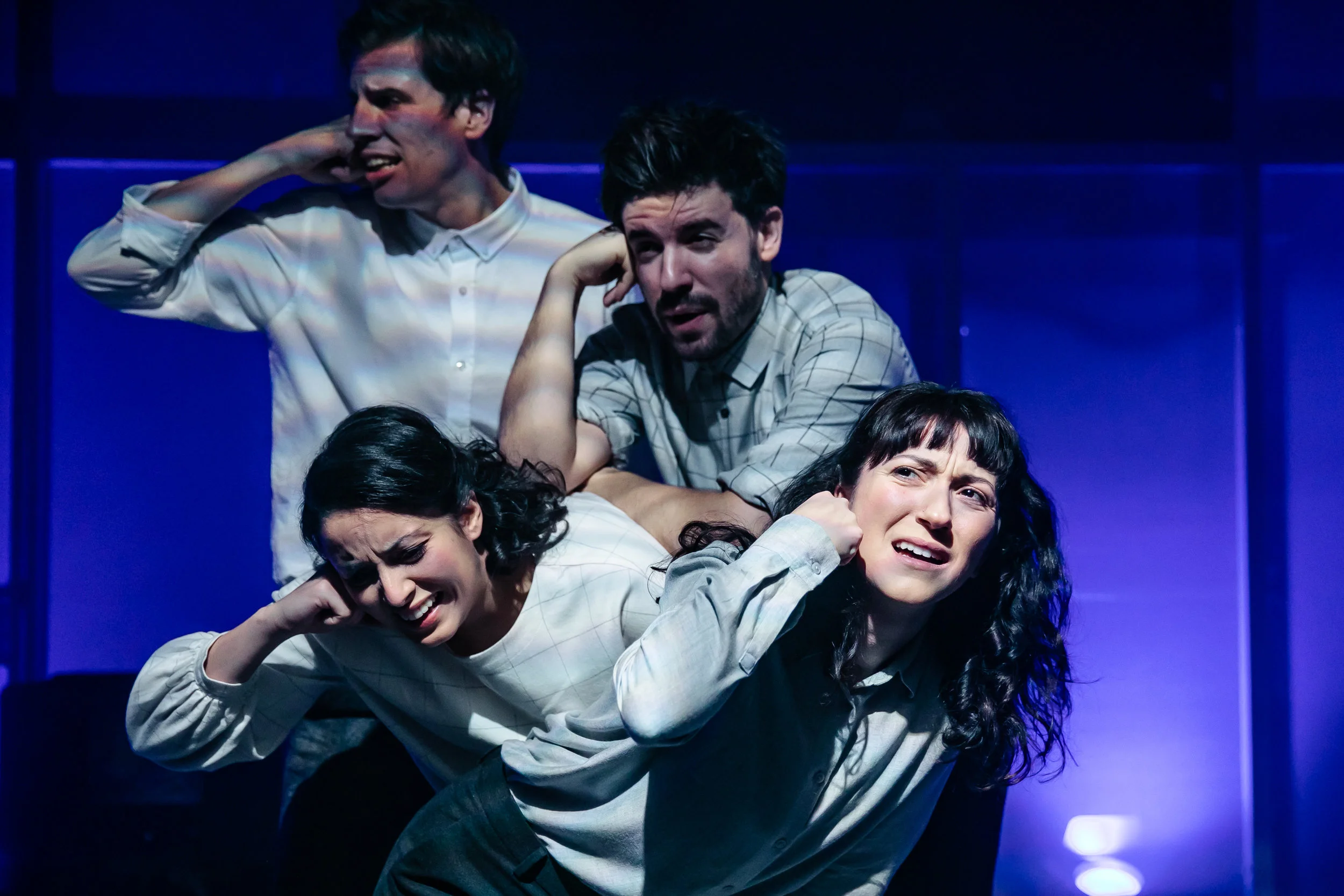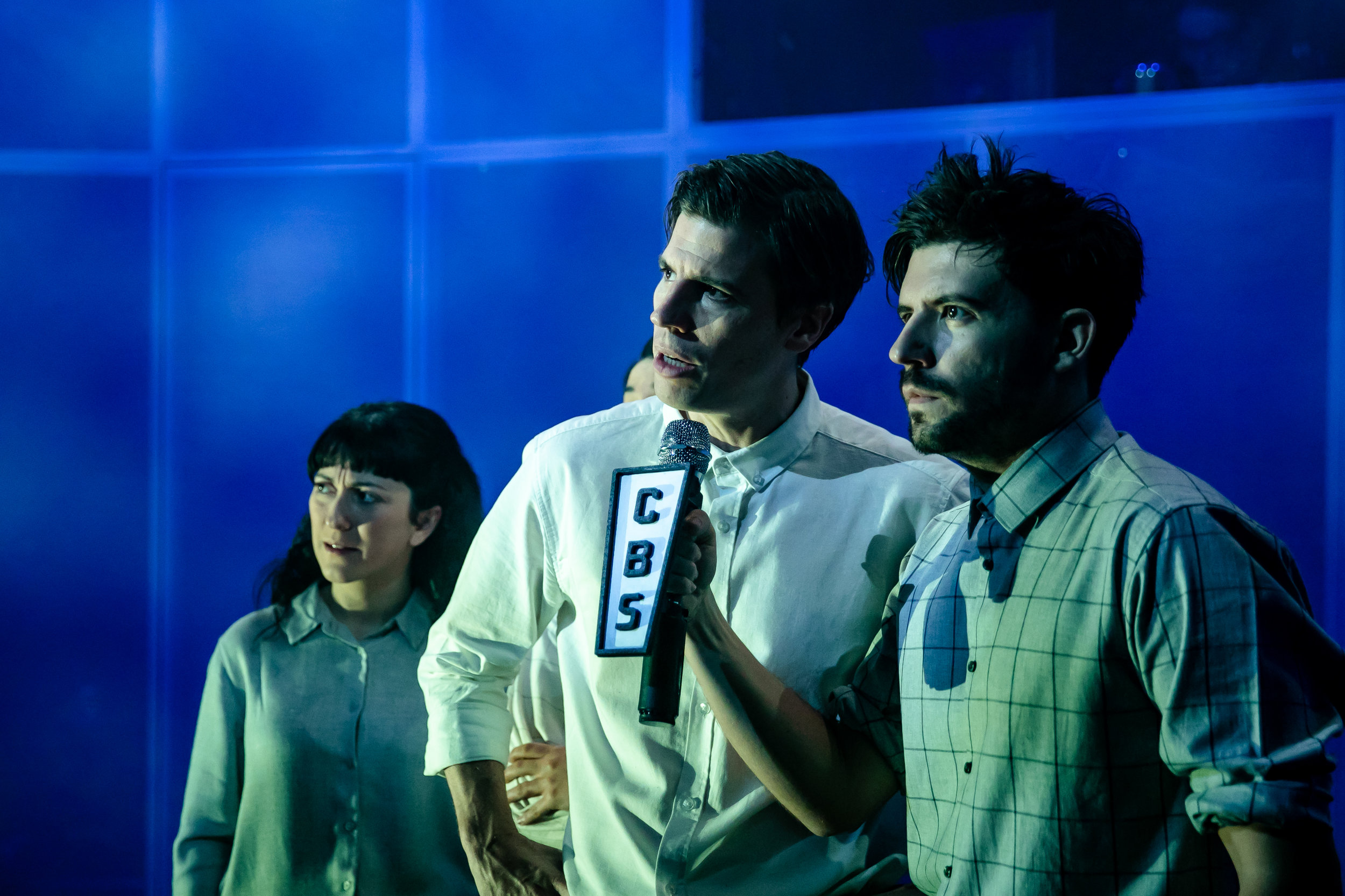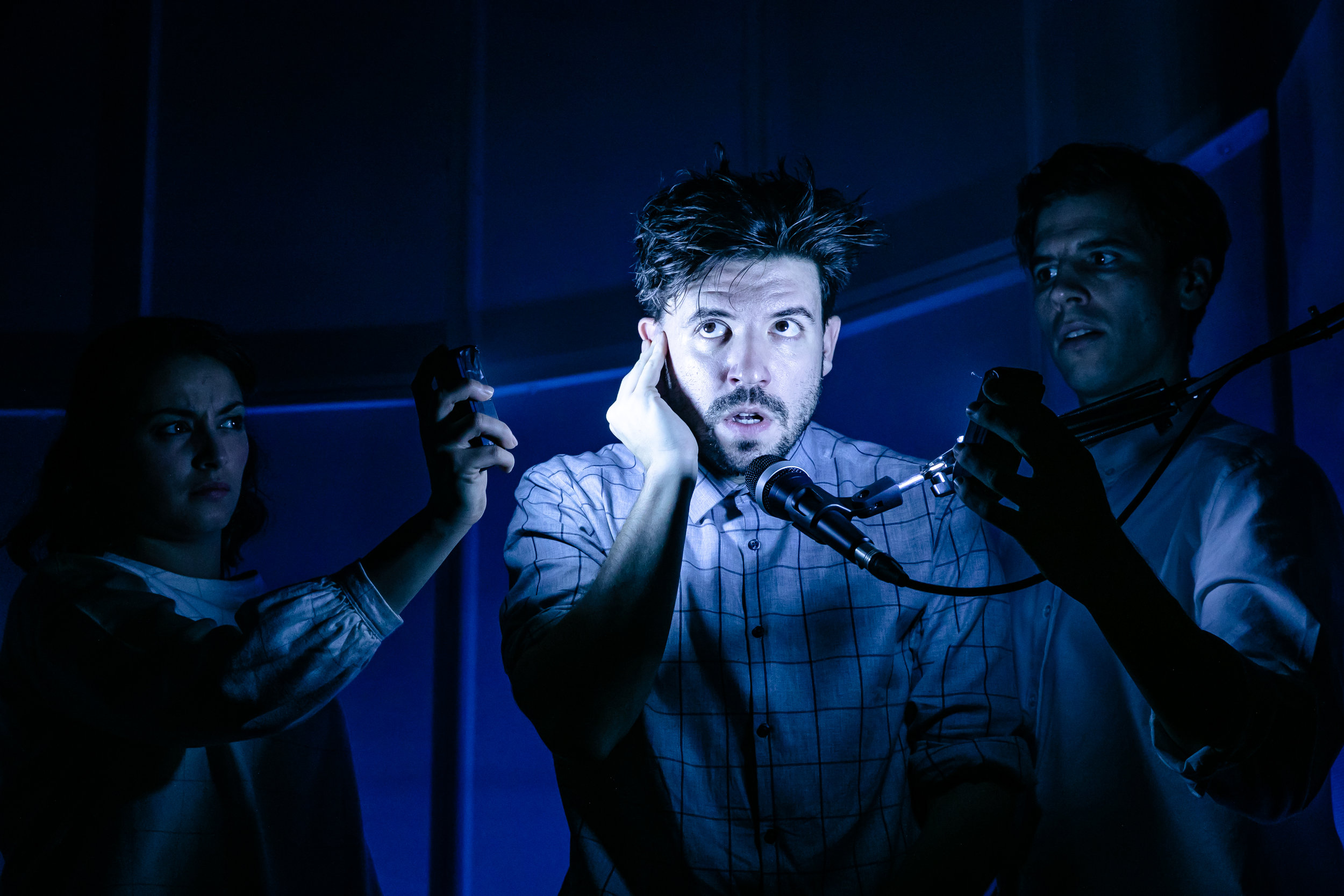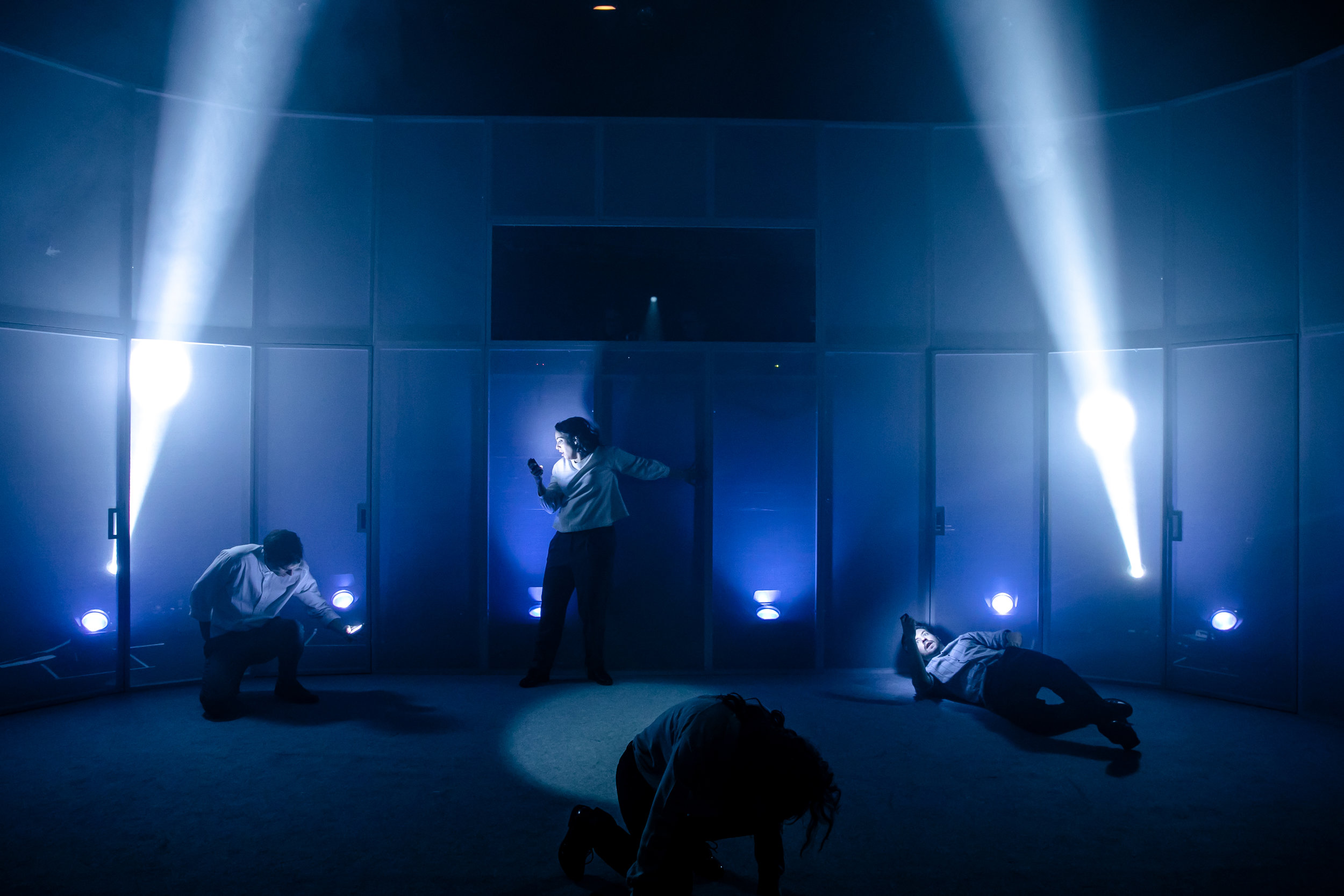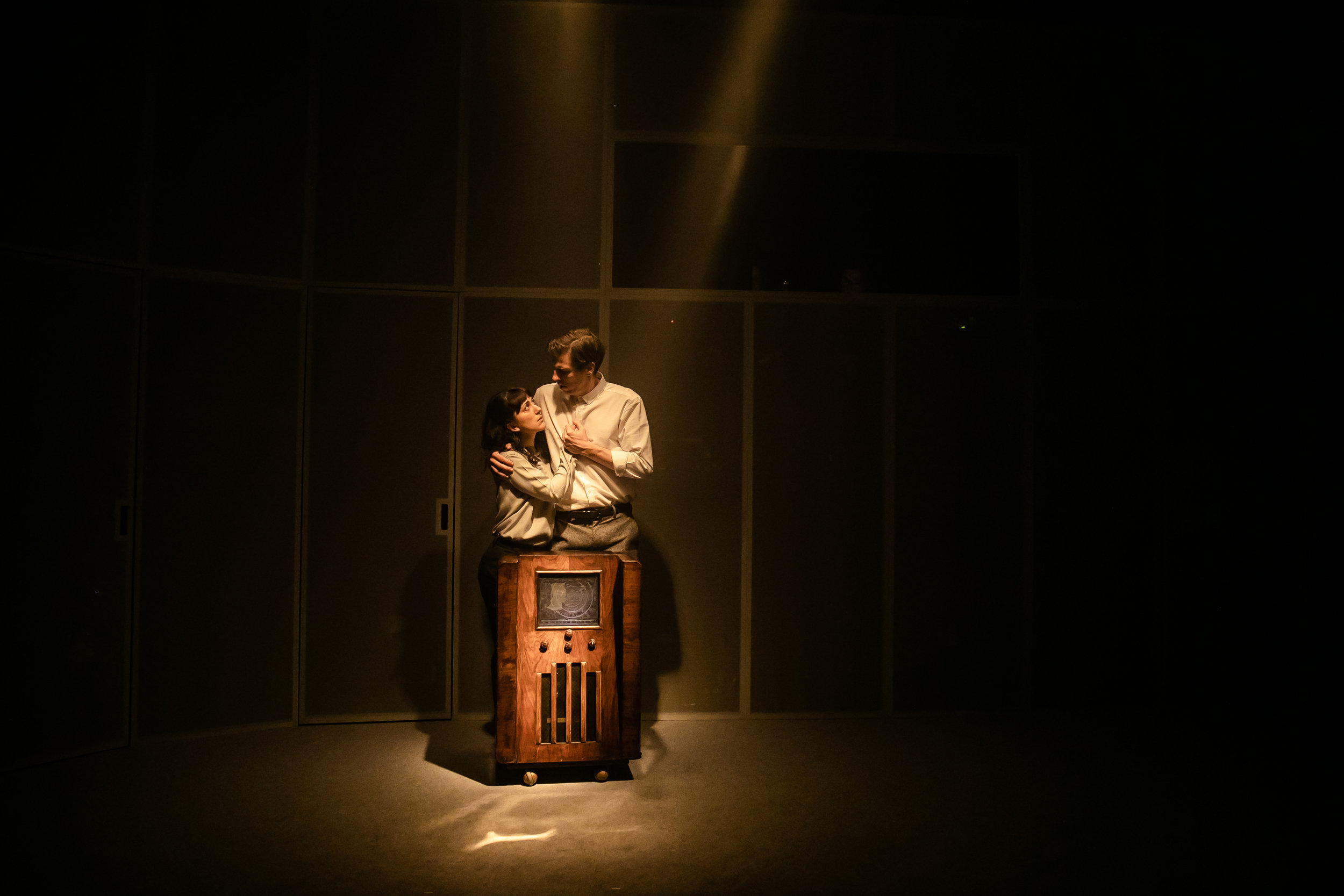“super-smart, multi-layered”
Lyn's Edinburgh Picks, Stagedoor
“No one would have believed in the early years of the twentieth century
that this world was being watched...”
But they did believe.
They believed that martians landed in New Jersey. They believed a water tower was an alien war machine. They believed a man walked on the moon. They believed everything the internet trolls told them...
Inspired by Orson Welles' famous radio broadcast and H.G. Wells’ sci-fi novel, The War of the Worlds wrestles with the boundaries of truth in a thrilling broadcast of the end of the world.
New Diorama, London
★★★★
THE OBSERVER
What makes the show remarkable – big beyond its length, size and means – is the way it builds in the course of the evening, moving through concentric circles of doubt. Who is the real Welles on stage, when there are four pipe-puffing claimants, none of them spherical and not all of them male? Did the broadcast really provoke widespread hysteria? How can we know when our sources of information so often lie to us?
Susannah Clapp
STAGEDOOR
Even the title both tells the truth but also slyly misleads. Because what is under scrutiny here is not just the broadcast and the myths surrounding it, but also the current info wars on the internet.
Tightly scripted by Isley Lynn (who wrote the excellent Skin a Cat) and devised by the company … There is a lot going on in 80 gripping minutes in which there are no less than four Orson Welles, and which constantly questions not just the nature of the truth but how some find the means to exploit it for personal or financial gain. Not to mention, how everyone is committed to their own particular version of the truth. That is very much the case within families where one person's truth is another's myth.
The evening delivers plenty of theatrical punches and plays lightly on the idea of theatre as a lie as it reminds how truth depends on who is telling it and why, how new technologies change the game, and how susceptible we remain to manipulation, particularly at times when the world seems an uncertain and frightening place.
Lyn Gardner
STAGE THE FINAL FRONTIER
A genuinely excellent play which brilliantly mucks about with objectivity, meaning and media.
Truth, in this play, is a slippery concept … this is a story about fictions, built on fictions, perpetuating fictions. It's simultaneously honest about its disputed source material, and ambiguous with what it all means; the play challenges us to be objective, when its story is anything but. And it ties all this - brilliantly - into an exploration of our post-truth, fake news culture. The play is built around a central conceit: the stories we tell ourselves are central to our worldview. What we choose to believe, where we choose to locate meaning, reinforces who we are, what we stand for. But when does fiction override, or even subjugate fact? When we choose to accept a story on whether it appeals to our instincts, prejudices or opinions, regardless of its basis in fact, how do we discern between truth and lies? When we have leaders and policies that galvanise through fear and divide via suspicion - and the play doesn't obfuscate over where it's aiming these particular thought grenades - how do we engage in meaningful social discourse? What starts off as an amusing amble into a seemingly innocent age of wholesome entertainment quickly becomes a clever discussion of how, where and why we should spend our trust and place our faith. Positioning the original radio play as an artistic factualising of fiction, Rhum and Clay follow the curve of this logic to arrive at the industrial fictionalising of fact.
It's also - and I cannot stress this enough - bags upon bags of fun … The performances are fluid, engaging and amusing, the writing is clear, surprising and resonant. There's plenty to enjoy here, in a show that is as inventive with its theatricality as it is with the notion of truth. The play exploits its dramatic medium as judiciously as Welles did with radio; the entire stage is active, and we never quite know what is coming next, or where from.
Ian Farnell
Photos by The Other Richard
Directed by Hamish McDougall and Julian Spooner
Movement by Matthew Wells
Design by Bethany Wells
Sound Design by Ben Grant
Lighting Design by Nick Flintoff and Pete Maxley
Producer Hannah Tookey
